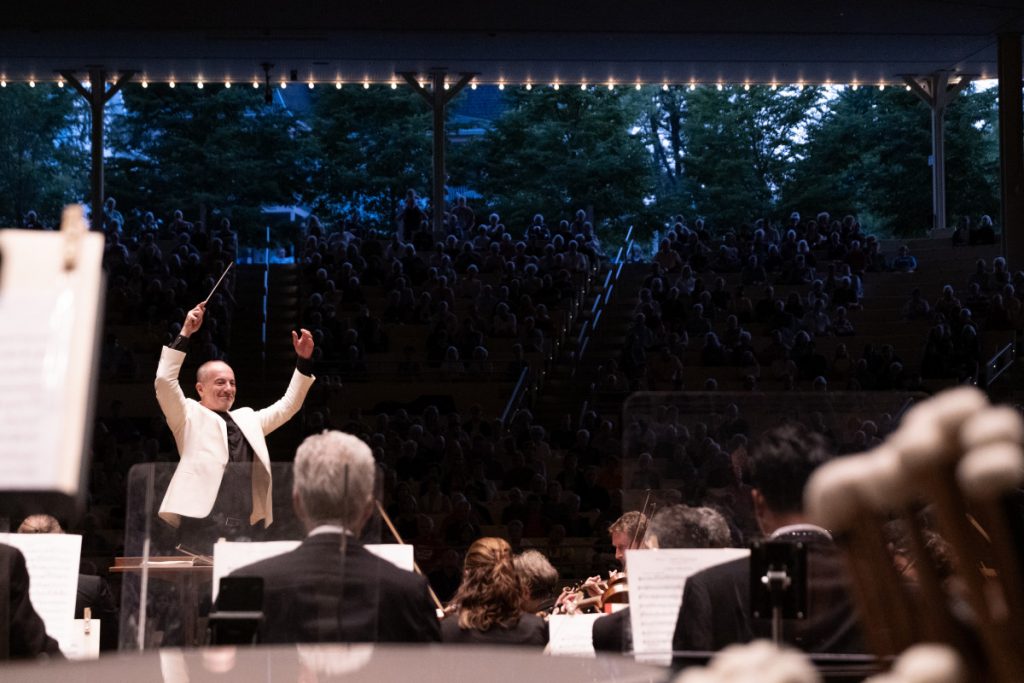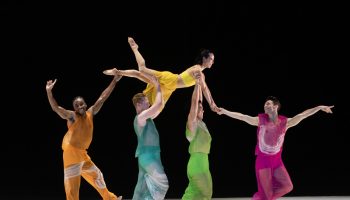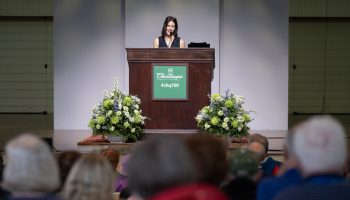
Sarah Russo
Staff writer
The 20th century was filled with the creation of new genres of music, from jazz to rock, but for African American composers, the time presented many challenges to gain recognition in the musical space.
Florence Price and William Dawson are two Black composers who persevered to share their musical talents with the world, and now the Chautauqua Symphony Orchestra will perform their works at 8:15 p.m. tonight in the Amphitheater under the baton of Musical Director and Principal Symphonic Conductor Rossen Milanov.
Tonight’s concert will begin with Price’s Concert Overture No. 2.
For decades, it was nearly impossible to hear a piece of her music. Despite her immense talent and drive, many classical music, performers and gatekeepers put her outside, and her work failed to gain traction with the large, almost exclusively white institutions that had the power to catapult her to the mainstream.
“Certainly Florence Price was a pioneer, to put it mildly, and she was an inspired musician — an inspired, prolific composer,” said Timothy Muffitt, artistic director of the School of Music and conductor of the Music School Festival Orchestra, who led the CSO in a Price performance ealier in this summer. “Naturally, she had a hard time getting her music played. People wouldn’t look at it, they wouldn’t even consider it, but she’s a composer of just extraordinary historical significance.”
As a Black female composer of the 19th century, Price comes from a different background than other composers of the time period. She uses her own individual perspective, while integrating a well-known and well-established musical vocabulary.
“I think that’s where a lot of the interest in her music lies,” Muffitt said. “It’s not like she’s inventing a whole new musical language. She’s using a language that’s already established. How that comes through in her music … she’s speaking a language we recognize, but it has an inflection and a spirit that is fresh still today, even though this piece is almost 100 years old.”
Born in Little Rock, Arkansas, in 1887, Price wrote four symphonies: Symphony No. 1 in E Minor won first prize in the Rodman Wanamaker Competition in 1932; Symphony No. 2 in G Minor is presumed lost; Symphony No. 3 in C Minor; and Symphony No. 4 in D Minor.
In recent years, there has been renewed interest in her work. A recording of her symphonies performed by the Philadelphia Orchestra was nominated for a Grammy Award in 2022. Her music has been performed by the San Francisco Symphony, the Atlanta Symphony Orchestra, the Chicago Symphony Orchestra and now the Chautauqua Symphony Orchestra.
Price’s Concert Overture No. 2 was composed in 1943. Two librarians at the University of Arkansas, Tom Dillard and Tim Nutt, found this piece in an abandoned Chicago residence of Price’s where she lived before her death in 1953; the overture may have been lost without their work.
“This masterpiece brilliantly intervenes the popular melodies,” Milanov said. “… And it concludes with an impressive climax.”
The CSO will also perform William Dawson’s Negro Folk Symphony. Dawson was a Black composer, choir director and professor specializing in Black religious folk music of the mid-1900s. Dawson himself wrote that his symphony was “symbolic of the link uniting Africa and her rich heritage with her descendants in America,” and gave each of its three movements a title. The three movements are: “The Bond of Africa”, “Hope in the Night” and “O, “Le’ Me Shine, Shine Like a Morning Star!”
“The themes are taken from what are popularly known as Negro Spirituals,” Dawson wrote for the program notes of the Carnegie Hall performance.
“I am glad that Chautauqua is one of the few places that this work could be heard live in this new edition,” Milanov said. “The orchestration style of Dawson is really impressive.”
Both Price and Dawson faced racism, but Milanov said the time during which the two composers lived was one of comparatively better circumstances.
“(There are) interesting connections here because both composers are Black and they were living in the 1930s in the United States,” Milanov said. “An interesting time and perhaps a little bit more open and encouraging for diverse voices to express themselves than following years.”
The program selection was purposefully chosen, Milanov said. Each piece by Dawson and Price holds a deep, historic narrative.
“Both works on the program will give us an opportunity to hear important music created by African American composers,” Milanov said. “(The composers) were inspired by themes that were very close to their cultural traditions.”




